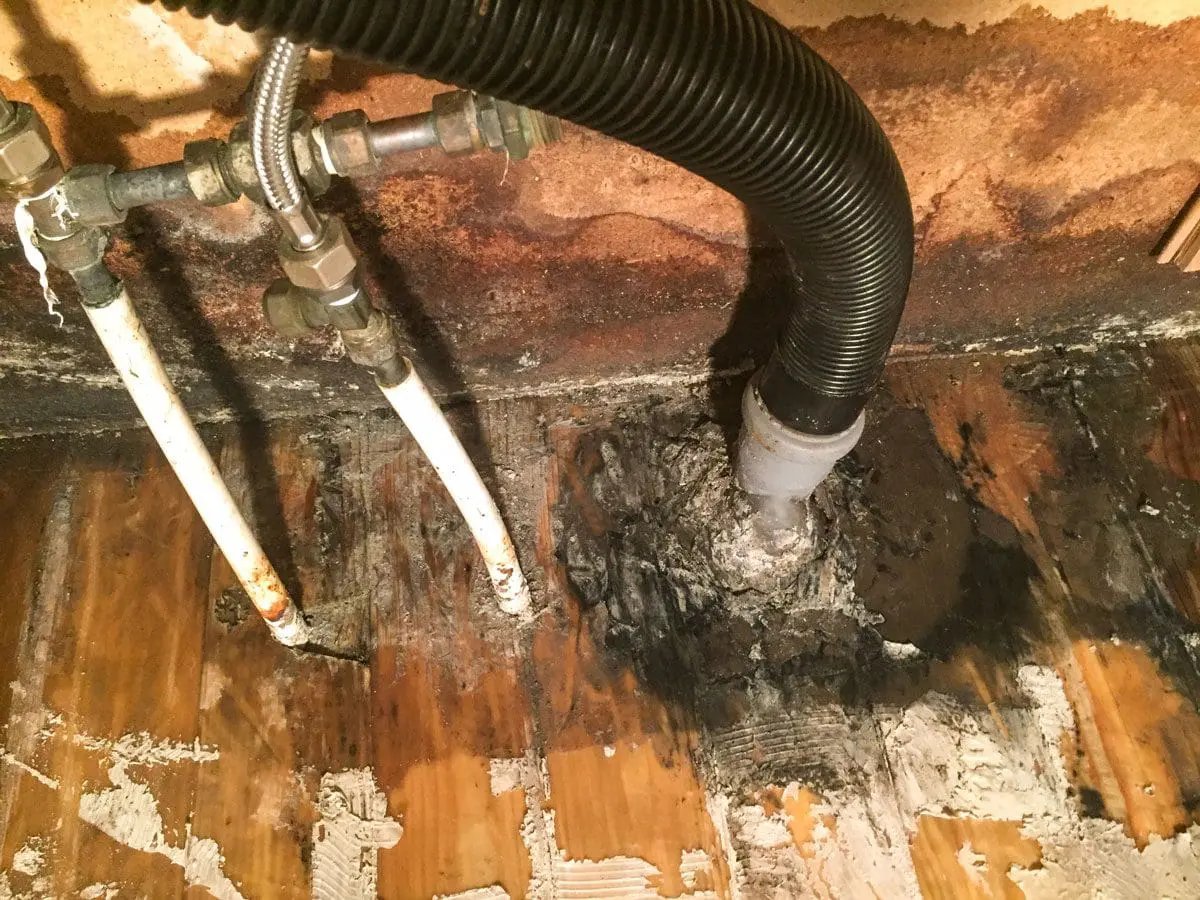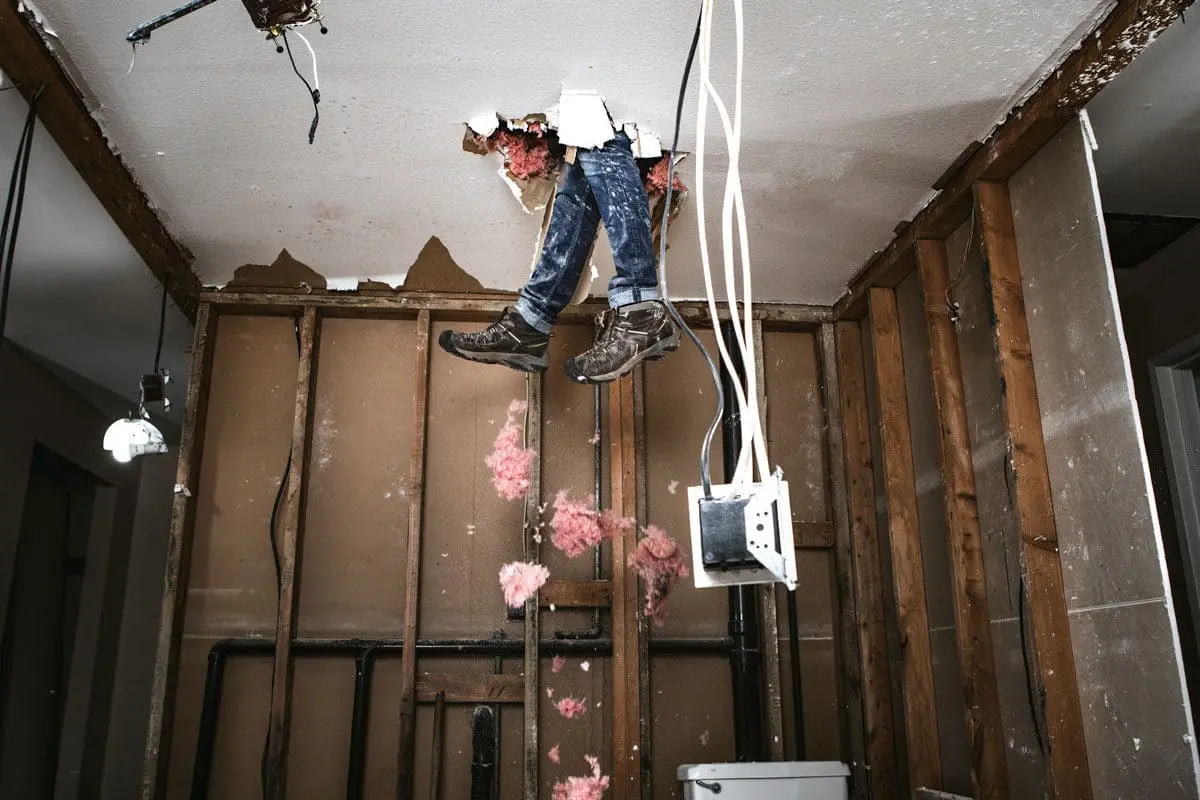Managing the renovation budget is a complicated process affected by many moving parts. At Recdi8 Living, we deliver our projects on time and on budget. However, this requires managing many things, including client expectations, timing, and contingency plans for things beyond our control.
There are many reasons why renovations can go over budget. Still, some of the most common reasons we see include the following:
UNDERESTIMATING THE COST OF MATERIALS AND LABOR

If you are not experienced, it’s easy to overlook certain expenses when planning a renovation, such as the cost of permits, removing and disposing of existing materials, and unforeseen repairs.
Underestimating the cost of labor and materials is one of the most common reasons renovations go over budget.
Labor
Homeowners often underestimate the time and skill required for specific tasks. They might also underestimate the cost of specialized labor, such as that required for electrical or plumbing work (very expensive).
Additionally, if you are planning a remodel and haven’t done one before, you might underestimate the project’s complexity. This can lead to scheduling issues and ultimately increase labor costs.
Materials
Homeowners might not realize the cost of the materials they have selected, or they might not account for waste and overage when calculating the cost. It’s essential to do your research and understand the costs of the materials you want to use before you begin a renovation. Additionally, you want to ensure that you are getting the best quality materials you can afford to ensure the project’s longevity and avoid future costly repairs.
It’s also important to remember that materials and labor prices can fluctuate over time, and prices can vary depending on where you live. So it’s essential to factor in a contingency fund for unexpected expenses.
Another vital thing to note is that permits, inspection, taxes (don’t forget VAT!), and compliance costs are usually underestimated, in addition to the cost of obtaining them. Those are essential parts of the renovation process and often are required by local laws and regulations. Not being obtained or managed correctly can lead to further delays or additional costs.
CHANGING THE SCOPE OF THE PROJECT

Once work begins, it’s not uncommon for homeowners to change their minds and add or change project elements, which can significantly increase the cost.
Lack of a Clear Idea
One of the main reasons for scope changes is that homeowners often don’t have a clear idea of what they want or how to go about getting it. They might see something they like during the renovation process and want to include it in their project.
For example, suppose a homeowner decides to move a wall or expand a room. In that case, it can increase the project’s cost because it requires additional materials, labor, and possibly structural changes. In addition, small changes like moving an electrical outlet or adding a switch, while they seem small and insignificant, can also increase the cost as it requires more labor and materials.
Knowing What is Required
Another reason is that homeowners might not anticipate all the work required to complete a project. For example, they might not realize that removing an old bathtub requires additional work, such as repairing the wall behind it, or the potential issues with a new flooring choice once it is installed.
It’s essential to have a clear plan and set of specifications before the renovation begins. This will help ensure that all of the work that needs to be done is accounted for in the budget. It’s also essential to have clear communication with the general contractor, to keep track of the progress and make sure that any changes or additions to the scope of the project are discussed and a fair price is agreed upon to avoid any misunderstandings.
A design professional can help you plan and organize your renovation and keep it on budget. They can guide you on design decisions, create detailed plans, and create detailed cost estimates, which can help minimize scope creep and the potential for surprise costs.
UNFORSEEN STRUCTURAL PROBLEMS

During a renovation, structural issues may be discovered that were not initially apparent, such as mold, rot, or termite damage. These problems can be costly to repair and add significantly to the overall budget.
Hidden Problems
For example, during a kitchen remodel, a homeowner might discover water damage in the walls or floors previously hidden by cabinetry. This damage can require extensive repairs, such as removing and replacing affected drywall or flooring and can add significantly to the overall budget.
Another example could be when a homeowner starts a bathroom remodel and discover that the floor framing is rotting and needs to be entirely replaced. The cost and time frame for the project can be significantly impacted.
Mold
Mold is also a common problem discovered during a renovation, especially in areas with high humidity like Barcelona or previous water damage. Mold remediation can be costly and time-consuming, requiring specialized knowledge and equipment to remove it safely.
Termite Damage
Termite damage is also a common problem that can occur in older homes, they can cause significant damage to the structure of a building and can be costly to repair.
Foundation Issues
When it comes to foundation issues, these can happen without a homeowner’s awareness, as they might be hidden underground. As soon as it is discovered, it can cause severe damage to the property, and the cost and complexity of fixing it can be high.
These are all examples of how structural problems can add unexpected costs and complications to a renovation project. It’s essential to budget for unforeseen expenses. Still, it’s also important to be aware of the signs of structural problems, such as water damage, mold, termite damage, or foundation issues, and address them before they become a bigger problem (and get discounts for repair BEFORE you buy the home, if possible).
Hiring a professional inspector or structural engineer to check the building before starting a renovation is a good idea, especially for older homes, as they can help identify any potential structural issues that might need to be addressed.
DELAYS

Delays can occur for various reasons, such as inclement weather, delays in receiving materials, or issues with obtaining permits. Delays can increase the overall cost of a project by adding to the labor costs.
Weather Delays
For example, suppose inclement weather causes a delay in the completion of a project. In that case, the contractor might need to pay the workers for extra time, or the homeowner might need to pay additional costs to keep the workers on the job.
Material Delays
Delays in receiving materials can also be a problem. For example, suppose a contractor orders a special item (custom countertops) that takes longer to arrive than anticipated. In that case, it can hold up the progress of the project.
Similarly, suppose a contractor is waiting for a shipment of general building materials (like bricks), and they are delayed. In that case, the workers might need to wait for the materials to arrive before they can continue with the project.
Permitting Delays
Issues with obtaining permits can also cause delays. Sometimes, permits are delayed or denied for various reasons, such as zoning issues or problems with the contractor’s application. This can cause delays in the project, as the work cannot proceed until the permit is obtained.
Labor Delays
Delays can also occur when a project depends on other tradespeople, such as electricians or plumbers, to execute their work in a particular order. If those tradespeople are unavailable, the project might be delayed.
It’s important to consider potential delays when planning a renovation and to budget for them. Having a clear schedule and communication with the general contractor can help prevent delays and minimize their impact. However, it’s also important to be flexible and prepared to adapt when unforeseen delays occur.
HIRING THE WRONG CONTRACTORS

Choosing a general contractor based on price alone is a mistake. Hiring an inexperienced or unlicensed contractor can lead to problems and costly mistakes that ultimately drive up the project’s cost.
Hiring the wrong contractor can cause renovations to go over budget for several reasons. Choosing a contractor based on price alone can be a mistake, as the lowest bidder may not always be the best choice.
Lack of Experience
One of the main issues with hiring the wrong contractor is that they may not have the necessary experience or qualifications to do the job correctly. This can lead to mistakes, such as using inappropriate materials or cutting corners on the work. These mistakes can be costly to fix, and they can also impact the quality of the final product.
Poor Communication Skills
Another problem with hiring the wrong contractor is that they may not be reliable or have poor communication skills. This can cause delays, misunderstandings, and miscommunication that can lead to additional expenses, such as paying workers for extra time or having someone else fix mistakes made by the first general contractor.
Insurance Coverage
An unlicensed contractor might not have the proper insurance, putting the homeowner at risk in case of an accident or damage. They also may not be able to legally perform the work required (unlicensed), which can lead to fines and penalties.
Cutting Corners
Unscrupulous contractors might also take advantage of homeowners by charging exorbitant prices, using substandard materials, or even doing unnecessary repairs. This is why it is crucial to research and get multiple quotes from different contractors.
Do Your Research
It’s essential to do your research when hiring a contractor and to choose someone with a good reputation for quality work, clear communication, and cost management. It’s also important to check that the contractor is licensed and insured.
Some good ways to research for a contractor include checking online reviews, asking for references, and speaking with people who have used their services in the past. A professional contractor should also be able to provide you with a detailed contract outlining the scope of the project, the timeline, and the costs. This way, you can better understand what the project will entail and how much it will cost.
CHANGES IN MATERIALS COSTS

Sometimes, materials costs can significantly increase during the project’s time frame, especially for imported products. This can have an impact on the final budget.
Materials prices can fluctuate over time, depending on various factors such as supply and demand and the cost of raw materials.
Supply Chain Disruptions
For example, lumber prices have increased over the past few years due to various factors, such as the pandemic disrupting the supply chain. This increase in the cost of lumber can cause an increase in the price of a renovation project that involves a lot of wood, such as a new deck or a home addition.
Tariffs and Currency Fluctuations
Similarly, some imported materials may be affected by tariffs, currency fluctuations, and other factors which can impact their prices and cause the project cost to go up.
Inflation
When planning a renovation, it’s essential to be aware of the current prices of materials and to factor in the potential for inflation. The cost can climb dramatically from the planning time to the time of your first materials order. It’s also necessary to get multiple quotes from suppliers to find the best prices on materials. Some suppliers are only locking prices for 30 days due to skyrocketing inflation.
Having a contingency fund for unexpected expenses, including potential increases in materials costs, can help mitigate the impact of inflation on your renovation budget.
Quality Differences
Additionally, it’s also important to be aware of the quality of the materials. The cheapest option may not be the best quality, and it could cost more in the long run if it needs to be replaced or repaired sooner.
It’s always a good idea to consult with a professional designer. They can help you understand the prices of the materials and how they might fluctuate over time and advise you on how to proceed with your project.
FINAL THOUGHTS
These are just a few examples, but many other factors can cause a renovation to go over budget.
It’s essential to be realistic about the costs and budget for unexpected expenses when planning a renovation.
Hiring a professional interior designer with a good reputation for cost management and clear communication will help ensure that the project stays on budget.
At Recdi8 living, we work with our clients in advance to prepare for these contingencies based on our years of experience in the construction and renovation industry.
Developing a Luxury property in Europe?
We help our clients turn their dreams into reality from the initial concept through a completed project.



